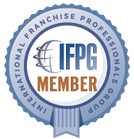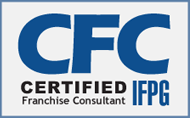
This story was published in the January, 2020 edition of The Franchise Journal
Why MBA’s From Top-Tier Schools Should Consider Franchising:
When I arrived at the University of North Carolina-Chapel Hill to begin my MBA, I was immediately immersed in the recruiting efforts of many internationally renowned organizations. It was 1998, the economy was growing at a rapid rate and businesses were eager to attract talent. The professors and the job placement staff were working furiously to prepare us for the networking, interviews, and job offers coming our way. However, one word I do not remember hearing during my two years of graduate school is “franchising.” I may have heard it in passing, but it certainly wasn’t an area of focus for opportunities upon graduation, or as an investment later in my career.
Top-tier MBA programs often focus on five career tracts:
- Consulting
- Corporate Finance
- Brand Marketing
- Investment Banking
- Entrepreneurship
While those all can be noble professions, entrepreneurship is the only tract that explores business ownership. The discussions within entrepreneurship were typically focused on creating the next Amazon or Tesla, not opening a small to mid-sized business. Not to burst your bubble, but there were a lot of people who thought they were the next Jeff Bezos.
Upon reflection, I think there are some misconceptions that franchising is an incredibly rigid approach to business that does not allow intelligent businesspeople to fully utilize their skills. Franchising is somehow a “cop-out,” and to be a real entrepreneur, you need to start an independent business. Realistically, there are a vast number of franchise brands, industries, and ownership-models that create opportunities that range from fairly-tactical to incredibly strategic.
For example, Jonathan Koplow received his MBA from the Kellogg School of Management at Northwestern University. He spent several years at some of the most prestigious consulting firms in the world before deciding to start his own business. “Coming out of consulting, I quickly realized that going the franchise route would allow me to focus on utilizing my skill set to assess the soundness of the concept, the potential demand in the market and the strength of the management team behind the brand, ” Koplow said.
Some of the following variables can help guide you toward a franchise that fits your unique situation.
The size of the Franchisor
The number of territories and franchisees in a system often impacts the role of the franchisees. While all good franchisors listen to feedback from their franchisees, your voice will be much louder in a smaller organization. If you don’t think you can stomach being one of 1,000 voices weighing in on next year’s strategic initiatives, then joining a smaller franchise system may be a good approach. Surprisingly, franchisees do have input into major decisions for the brand, but the larger percentage of franchise ownership you represent, the louder your voice will be heard. However, joining a smaller system can be viewed as more risky than a larger system, but it is likely still less risky than starting an independent business. On the other hand, if you are more risk-averse and/or operations focused, a larger more mature brand will likely allow you and your team to focus on execution.
The ownership-model
When most people think of franchising, they think about owning a single unit (one territory or location) or multiple units. While this is a common approach, there are other ownership-models to consider. Depending on the amount of control you want and risk and investment you want to take, two additional models to consider are Area Developers and Master Licensees.
Area Development agreements are used by franchisees to secure the rights to open multiple locations of a franchise in a specified geographic area. This is often used in rapidly growing franchise systems. This can involve upfront payments with reduced franchisee fees and royalties in return.
Another approach is Master License agreements. They allow the franchisee to open locations and also allow the franchisee to sell units and Area Developer agreements. The Master Licensee typically shares in franchise fees and royalties collected. With this approach, you are basically acting as a franchisor for a designated area.
Franchising as an investment
Franchising can also be a passive or semi-passive investment. Often, I work with investors that have had tremendous success in their careers and are simply seeking an alternative investment. What many of them don’t realize, is that some franchisors cater to franchisees who do not want to work day-to-day in the business. Franchise ownership can often involve little to no ownership involvement. This allows the franchisees to keep their current full-time roles, while becoming business owners.
In summary, there are many different approaches to franchising and many different types of franchise opportunities. There may be an approach that allows you to enter a new industry, leverage the skills you’ve developed, focus on the aspects of the business you enjoy, all with a comfortable level of risk tolerance. I think it’s worth investigating. “As someone who hasn’t operated a business before, the support system is invaluable and serves as a rapid accelerator,” Koplow agrees.
About the author: Kevin Baron is a graduate of the University of North Carolina-Chapel Hill’s MBA. After spending several years in corporate-America and in franchise ownership/operation, he is now President and owner of The Franchise Counselor.
To sign up for blog updates and other valuable information:


